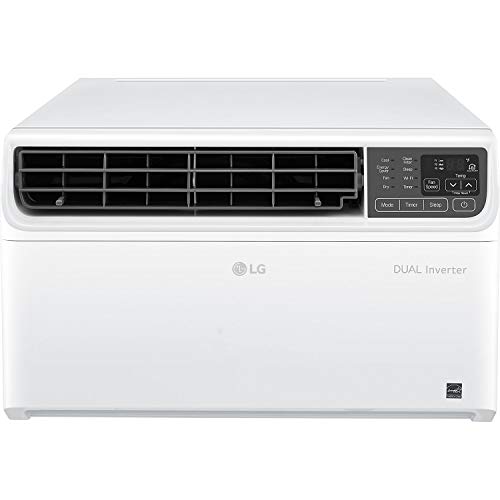Purchasing the proper air conditioner is essential to the comfort of daily life. Air conditioners with inverter technology are quickly becoming the most popular choice for homeowners.
For the average customer, what does the inverter mean, and how can you tell if the air conditioner is an inverter? We've asked experts, and we have gathered the best answers.
Inverter air conditioners are sophisticated machines that utilize a regulated compressor. When you lower the thermostat, you have an inverter unit if you hear the sound of a changing compressor. The compressor runs continuously and never stops.
Inverter technology is an innovative technology that can save electricity compared to conventional air conditioners.
You'll need an air conditioner that keeps your home cool and comfortable and meets your unique requirements.
This post will help you comprehend the difference between inverting and non-inverting air conditioners. Continue reading to have the most accurate information possible.
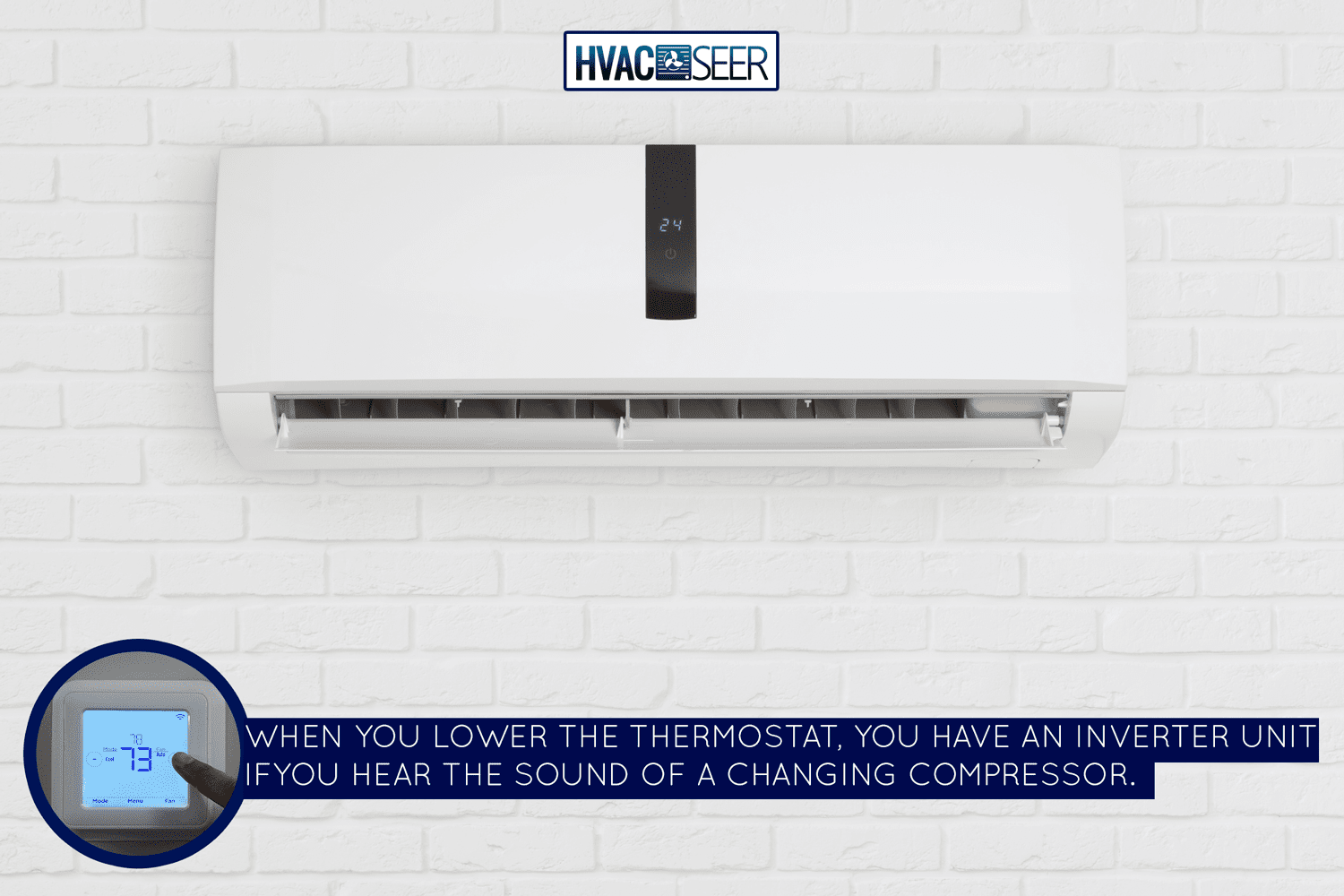
Inverter Vs. Non-Inverter Air Conditioner
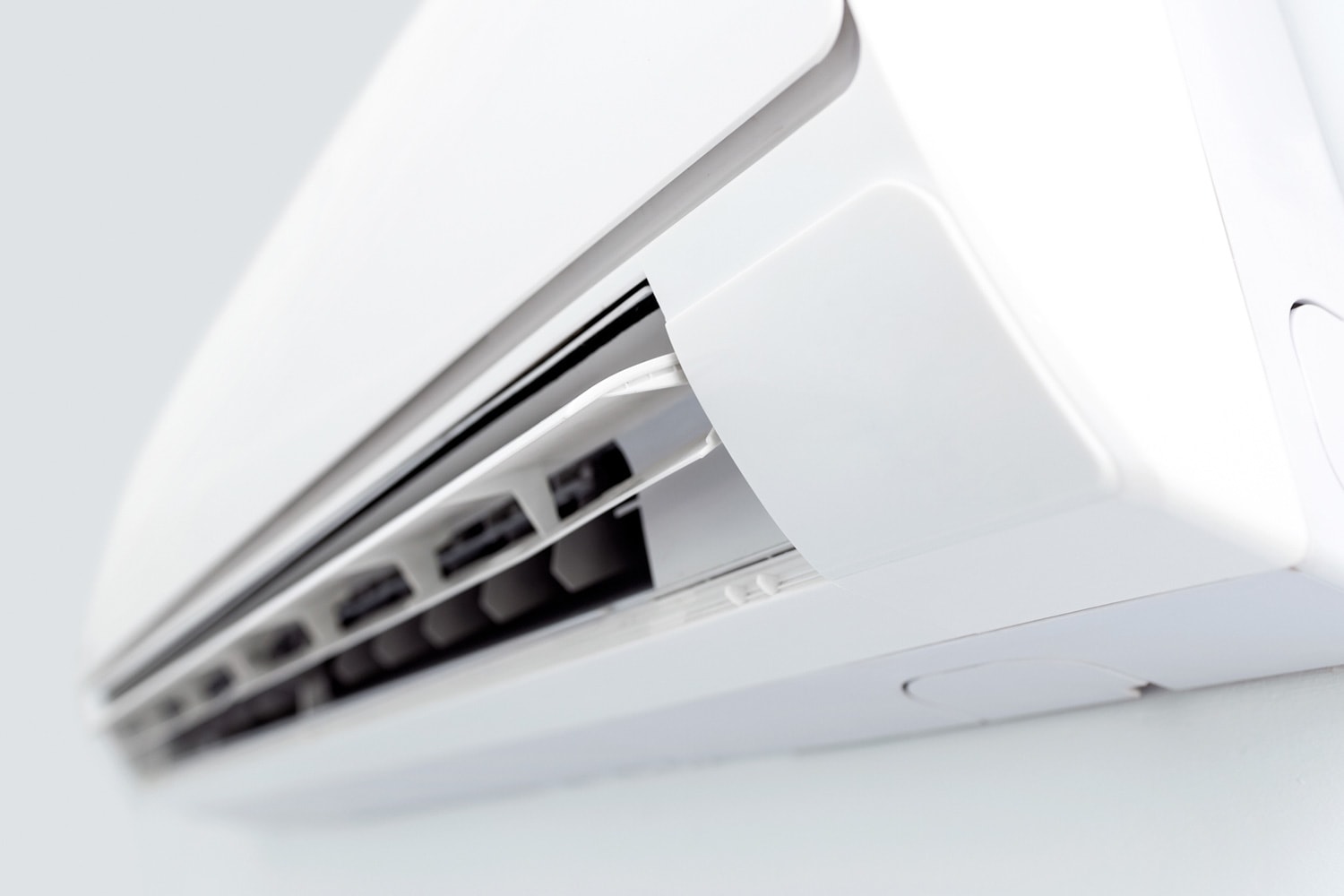
Air conditioners are essential to modern living. They enhance people's comfort in their surroundings.
Inverter and non-inverter air conditioners are the most popular options for selecting the best air conditioner for your house or office.
The inverter and non-inverter air conditioners are distinct in various ways, including their functionality and features.
You can learn the pros and cons to determine what air conditioner meets your needs, budget, and home design.
We will help you select the appropriate air conditioning unit for your home. Below are the factors that one should consider when buying an air conditioner.
1. Speed
The non-inverter air conditioner has a start-stop compressor that cycles on and off to achieve the required cooling effect.
Non-inverter motors only operate at full speed before shutting off when the target room temperature is reached.
As soon as the compressor unit turns off, the room will quickly become warm again. Once this occurs, the outdoor unit will begin operating at total capacity again.
The repeated on/off cycle generates more noise and consumes more energy. It has no control over its power supply, and the speed of its compressor is fixed.
The exterior compressor can speed up or slow down with inverter air conditioning.
The inverter air conditioner includes a variable-speed compressor that permits controlled operation of the compressor to modify the air conditioner's temperature.
Click here to see this LG 12,000 BTU window air conditioner on Amazon.
An inverter air conditioning system starts working much faster than without this technology and quickly reaches the desired temperature.
Inverter systems begin operation at a low speed. As a result, it consumes significantly less power at launch.
Additionally, cooling is practicable because you can now maintain temperature levels. It indicates that an inverter AC does not need to shut down.
Furthermore, it can eliminate the frequent start-stop cycles, enhancing the unit's long-term energy efficiency.
These units differ from those without inverters, in which the compressor operates at a single speed. Thus, it can provide the user with optimal performance.
Click here to see this LG 9,500 BTU inverter air conditioner on Amazon.
2. Efficiency
A non-inverter unit turns on and off randomly to maintain a set temperature threshold around room temperature, making them less energy efficient.
A non-inverter air conditioner delivers constant energy based on the room's temperature. Its sensor automatically adjusts the power supply based on the room's temperature, automating cooling and heating processes.
The inverter air conditioner operates more efficiently than the non-inverter air conditioner. It substantially reduces power usage over the air conditioner's life.
As a result, your system will stand the test of time, and you won't have to purchase a new air conditioner soon.
The compressor decelerates and accelerates to maintain the desired temperature. Thus, the compressor is not constantly operating at full power.
This makes the inverter-grade air conditioner far more energy-efficient than conventional air conditioners.
Inverter technology determines if the temperature needs to be adjusted to suit the owner's or user's preferred level. It is environmentally friendly and uses less electricity because of its variable-speed compressor.
3. Lifespan
The lifespan of an air conditioner is a significant deterrent for potential consumers.
People today are increasingly concerned with guaranteeing that a product will last numerous years.
Non-converters have a shorter lifespan. Due to the frequent on-off cycles, the compressor always operates at high power, and its lifespan is diminished.
It produces significant wear and strain. Therefore, the system may fail sooner than anticipated.
On the other hand, inverter air conditioning systems have a longer lifespan compared to non-inverter ones.
The secret to a long life is that the technology is more efficient, so the system doesn't have to work as hard.
4. Noise
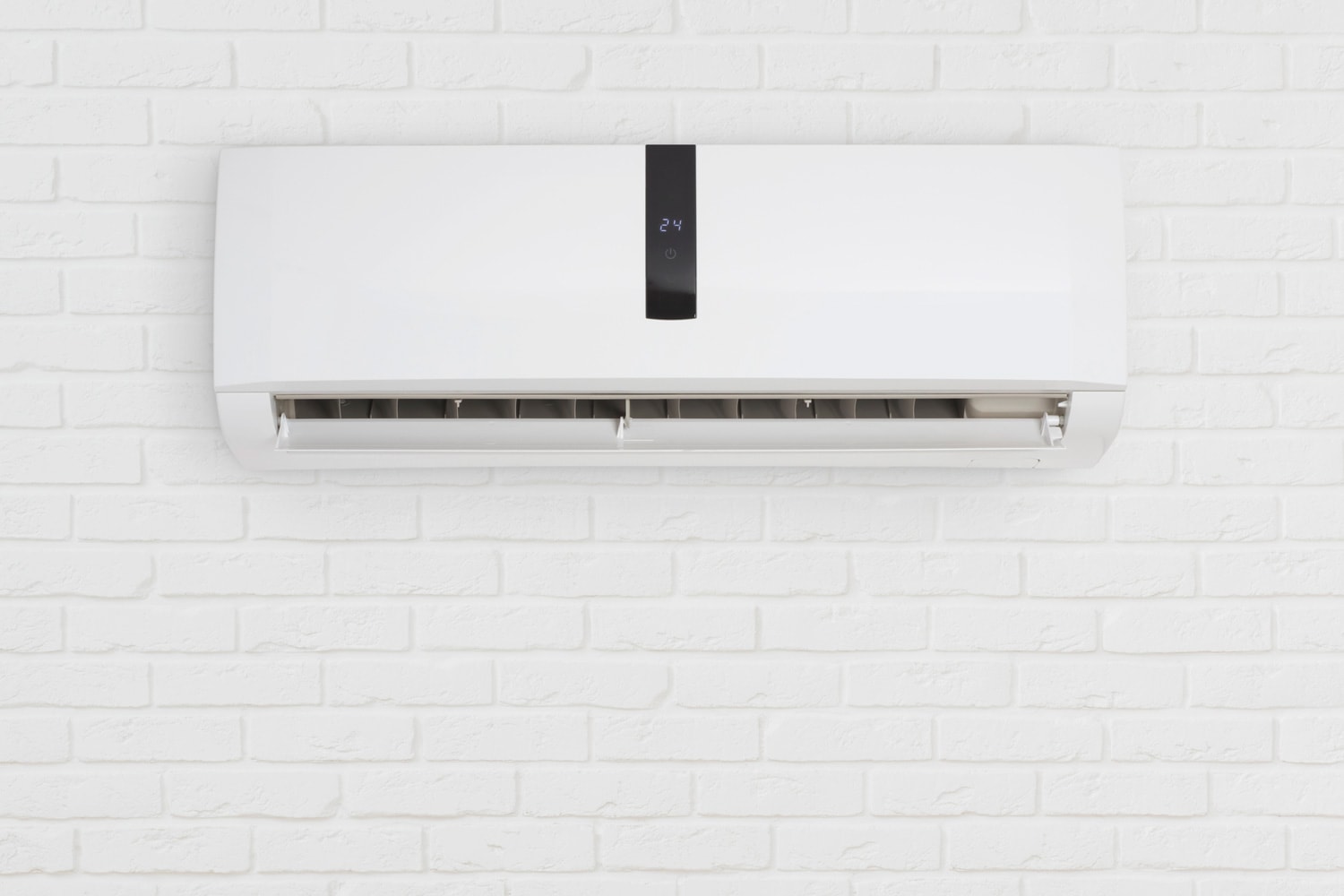
In conventional, non-inverter air conditioning equipment, the compressor is typically either off or on, silent when off, and producing a high-pitched sound when running.
Its "on/off" switch generates far more noise than the inverter unit.
If your existing air conditioner is noisy or raises electricity costs, you should consider replacing it. You might opt to utilize inverter air conditioning units.
Inverters do not need to turn off and on when the desired temperature is reached. Instead, they continuously change the temperature with minimal or no noise.
The inverter-grade air conditioner will be significantly quieter than a conventional one because you won't hear traditional air conditioners' loud start-up and shut-off noises.
5. Cost
Inverter technology in air conditioning units is in high demand since it reduces operating costs and contributes to a more reliable system, resulting in fewer failures and maintenance and substantial savings over time.
It provides a continuous flow of heating or cooling rather than repeatedly stopping and starting, which reduces energy outputs and helps keep energy levels lower than in non-inverter systems.
You could save up to 65% compared to non-inverter systems.
The inverter air conditioner may be expensive to buy at first compared to non-inverts, but it would be an outstanding choice due to its longevity and adaptability.
Its features make the expensive inversion air conditioning system worthwhile.
Does Inverter AC Save Electricity?
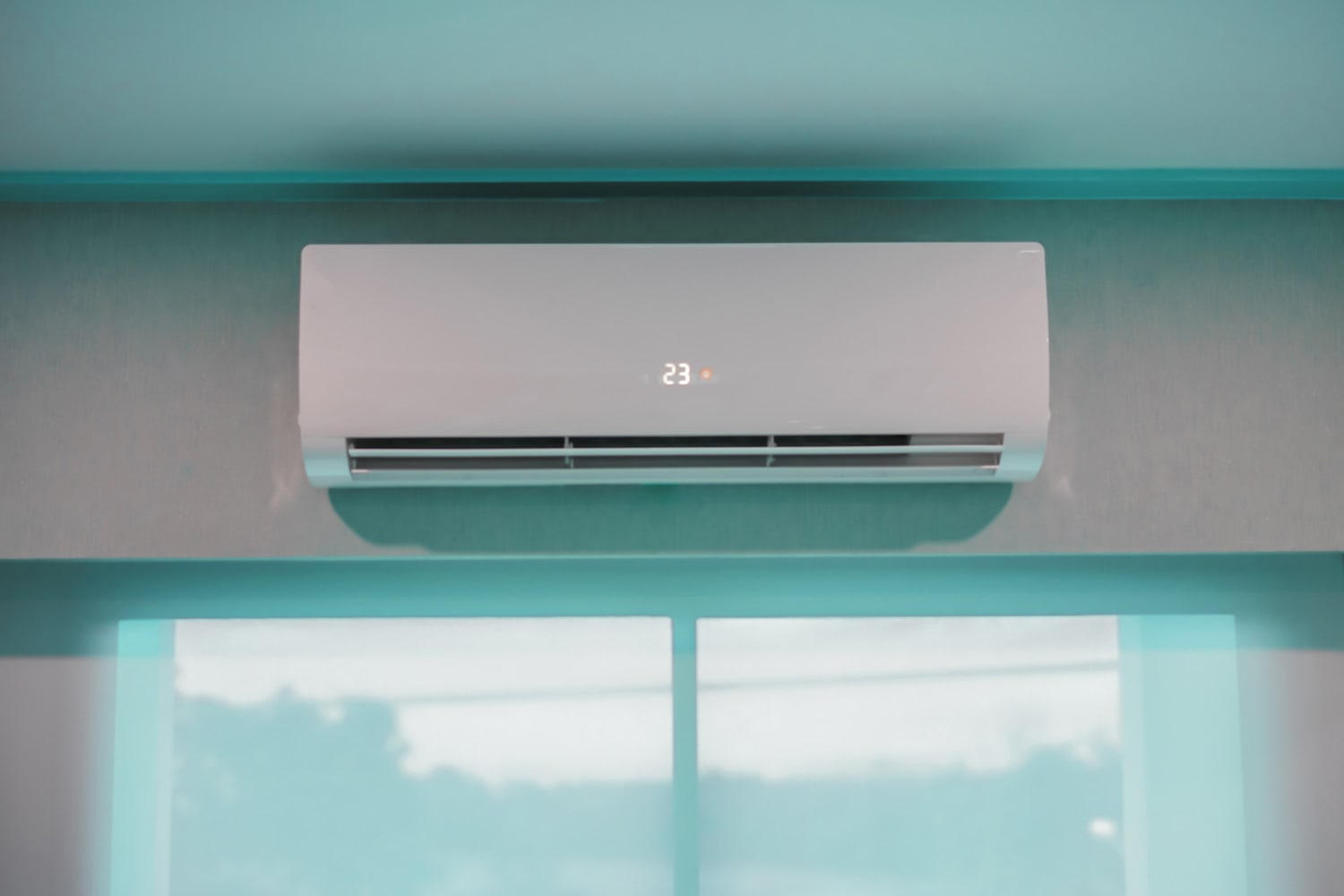
Non-inverter air conditioners operate at maximum capacity and often start due to their "on/off" switch.
A typical air conditioner will take a lot of electricity every time it starts. In addition, continuous operation at maximum capacity will consume substantial electricity.
On the other hand, inverters do not have to switch on and off repeatedly, and it does not continuously operate at their maximum capability. They significantly conserve electricity.
With the engine continually operating, your home's humidity is also better managed. Installing an inverter air conditioner is also a greener alternative.
Additionally, an inverter air conditioner will increase your comfort.
What Is The Disadvantage Of Inverter AC?
The main disadvantage of inverter air conditioners is their starting cost because it often reaches 20% to 25% more than conventional air conditioners of the same rating. The involved technology is also relatively fresh.
The market demand for these air conditioners is currently low. In addition, it is priced excessively due to its costly components.
Since inverter air conditioning systems have highly complex circuitry and pricey components, their maintenance costs will be higher.
If a service warranty does not cover the equipment, it is recommended to be repaired only by a professional from the device's original manufacturer, which might be costly.
Before making a buying decision, you must consider whether or not you can afford the potential costs associated with any potential problems.
Is It Okay To Leave The Air Conditioner On All Day?
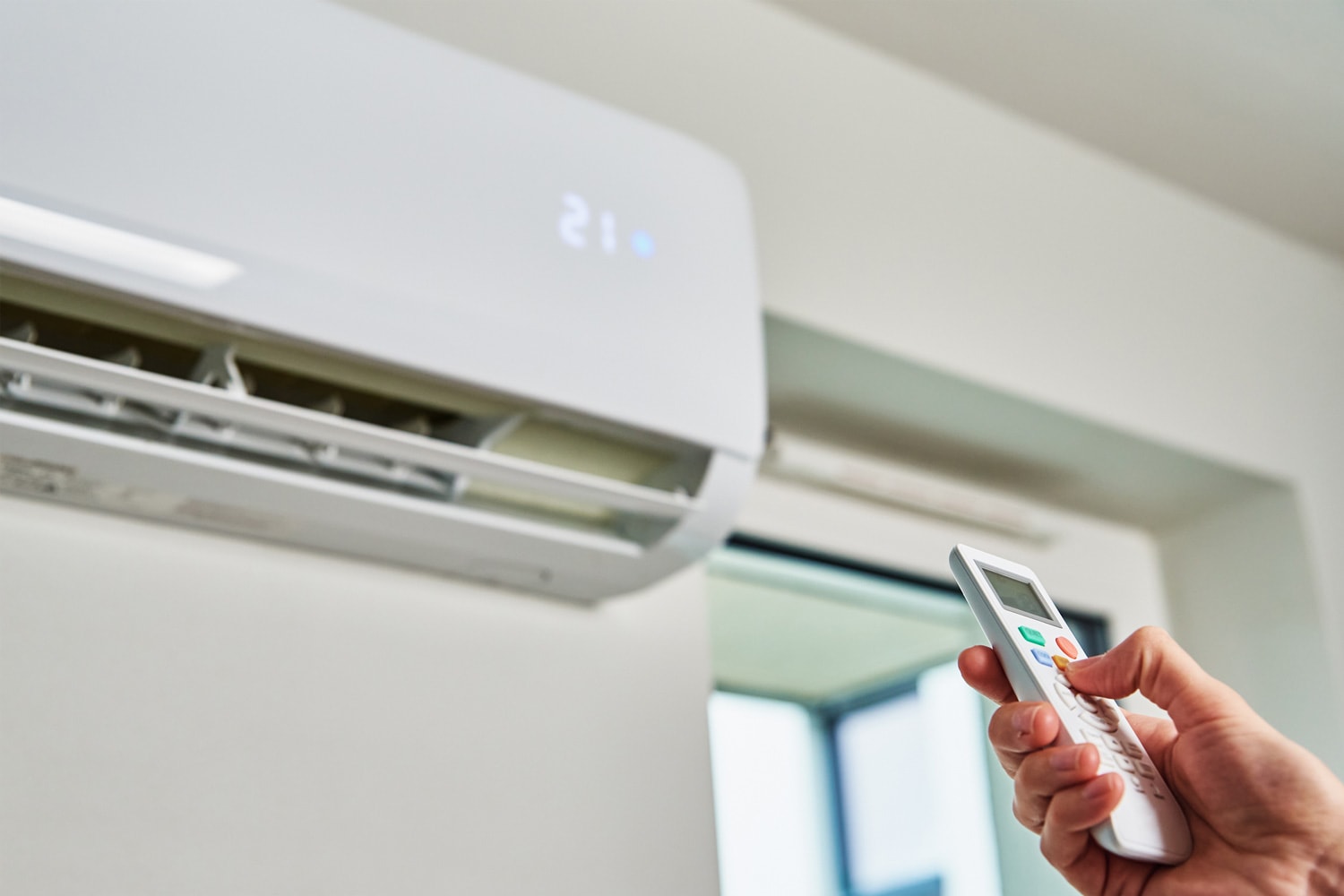
Typically, the inverter air conditioner may run continuously for several days without issue.
However, it is always advisable to turn off the inverter air conditioner while it is not in use. It will help you save a great deal of energy and money.
It will simply waste energy and cost you a fortune in excessive electricity bills. However, you can keep the inverter AC running for as long as needed.
In Closing
Inverter units are the most recent advancement in air conditioning technology. Inverter air conditioning is the most energy-efficient option.
Even though it is more expensive than other options, it can save you money and energy in the long run.
While choosing a system with the most recent technology is always a good idea, don't forget to consider other aspects that can impact your decision.
It would be best to consider factors such as how often you'll use the air conditioner and in what setting you will use it most often.
While the inverter air conditioner is unquestionably the superior investment and the more dependable option, the non-inverter air conditioner is significantly more affordable, especially for families that will not use the air conditioner frequently.
It is recommended that you choose an air conditioner that meets your needs. There are many reasons to choose one type of air conditioner over another.
Yet, both inverter and non-inverter AC models are famous worldwide since they aim to keep you and your family comfortable.
We hope you enjoyed this article. If you feel inspired, you may want to check out these other related posts:
How Much Electricity Does A Window AC Use?
How Long Do LG Air Conditioners Last?


